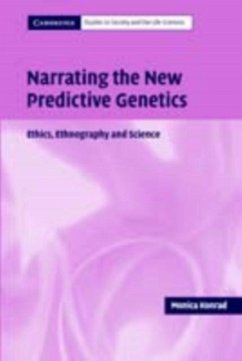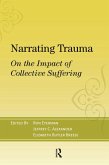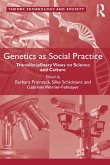This book explores the way changes in technology have altered the relationship between ethics and medicine. For some inherited diseases, new genetic testing technologies may provide much more accurate diagnostic and predictive information which raises important questions about consent, confidentiality and use of the information by family members and other third parties. What are the implications of this knowledge for individuals and their families? And for society more widely? How should this new information be used? How do people deal with the choices that new knowledge and technologies offer? Drawing on extensive ethnographic research with families affected by Huntington's Disease, and using perspectives from medical and cultural anthropology, the author explores the huge disparity between the experience of living with the results of genetic testing and the knowledge and expertise which are drawn on to develop policy and clinical services.
Dieser Download kann aus rechtlichen Gründen nur mit Rechnungsadresse in A, B, BG, CY, CZ, D, DK, EW, E, FIN, F, GR, HR, H, IRL, I, LT, L, LR, M, NL, PL, P, R, S, SLO, SK ausgeliefert werden.









